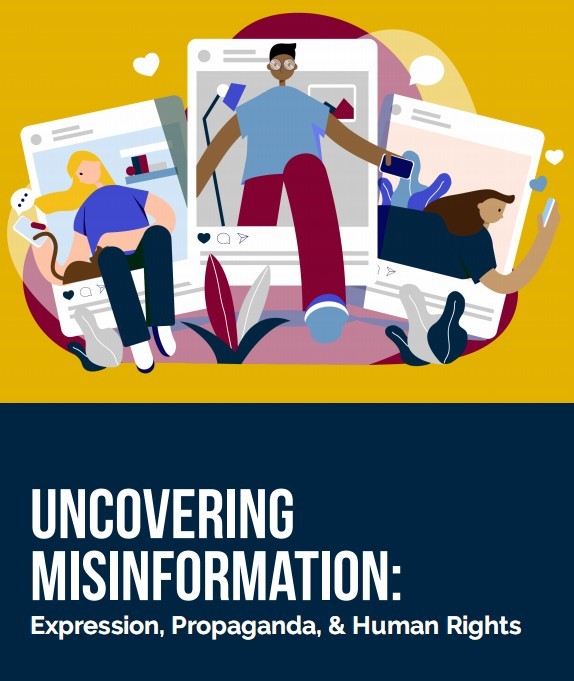Resources
Topic
What is freedom of expression and why is it an important element in democratic societies?
Download Full Book Alignment Guide
UNCOVERING MISINFORMATION: Expression, Propaganda, & Human Rights

Dear Educators!
In recent years, we have seen the serious and far-reaching consequences of misinformation and “fake news”. From false claims about the origins of COVID-19 to conspiracy theories promoted by world leaders, misinformation is amplified by the speed and breadth of the internet and social media. It has the ability to change minds, influence opinions, and in extreme cases, has led to violence. Critical analysis and close reading are important skills for our students. Their ability to recognize misinformation and propaganda is necessary for navigating the torrential and constant flow of information.
This set of four lessons provides teachers with resources to educate students about freedom of expression as a basic human right, misinformation, the role of the media, and propaganda. The goal is to provide opportunities for students to learn about misinformation and to develop skills to critically analyze the media that they consume.
The activities in UNCOVERING MISINFORMATION: Expression, Propaganda, & Human Rights connect directly to several UDHR articles, including:
• Article 1: Right to Equality, Dignity, and Respect
• Article 2: Freedom from Discrimination
• Article 18: Freedom of Thought, Religion, and Belief
• Article 19: Freedom of Opinion and Expression
• Article 29: Our Duty to Each Other
• Article 30: Human Rights Belong to You
Hope of Family


